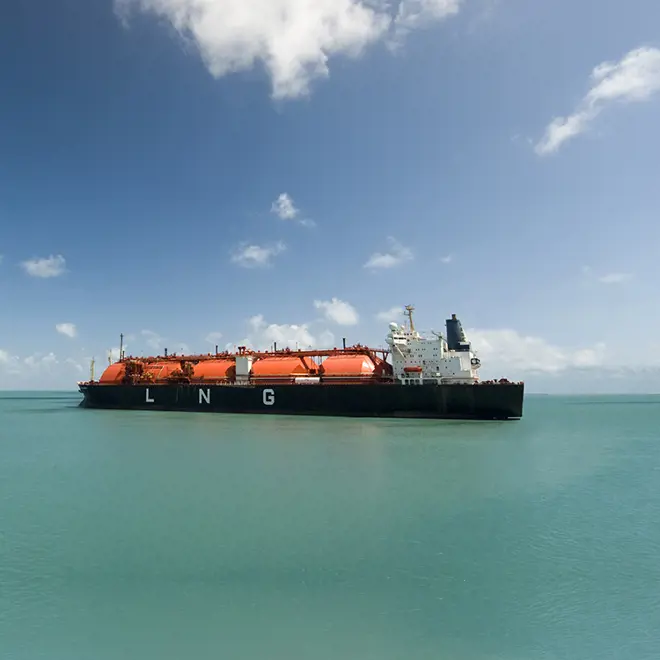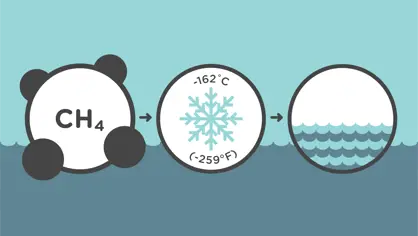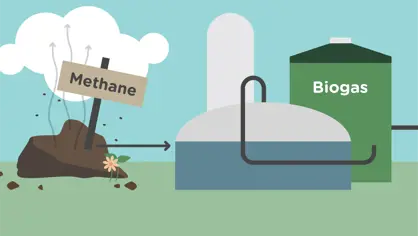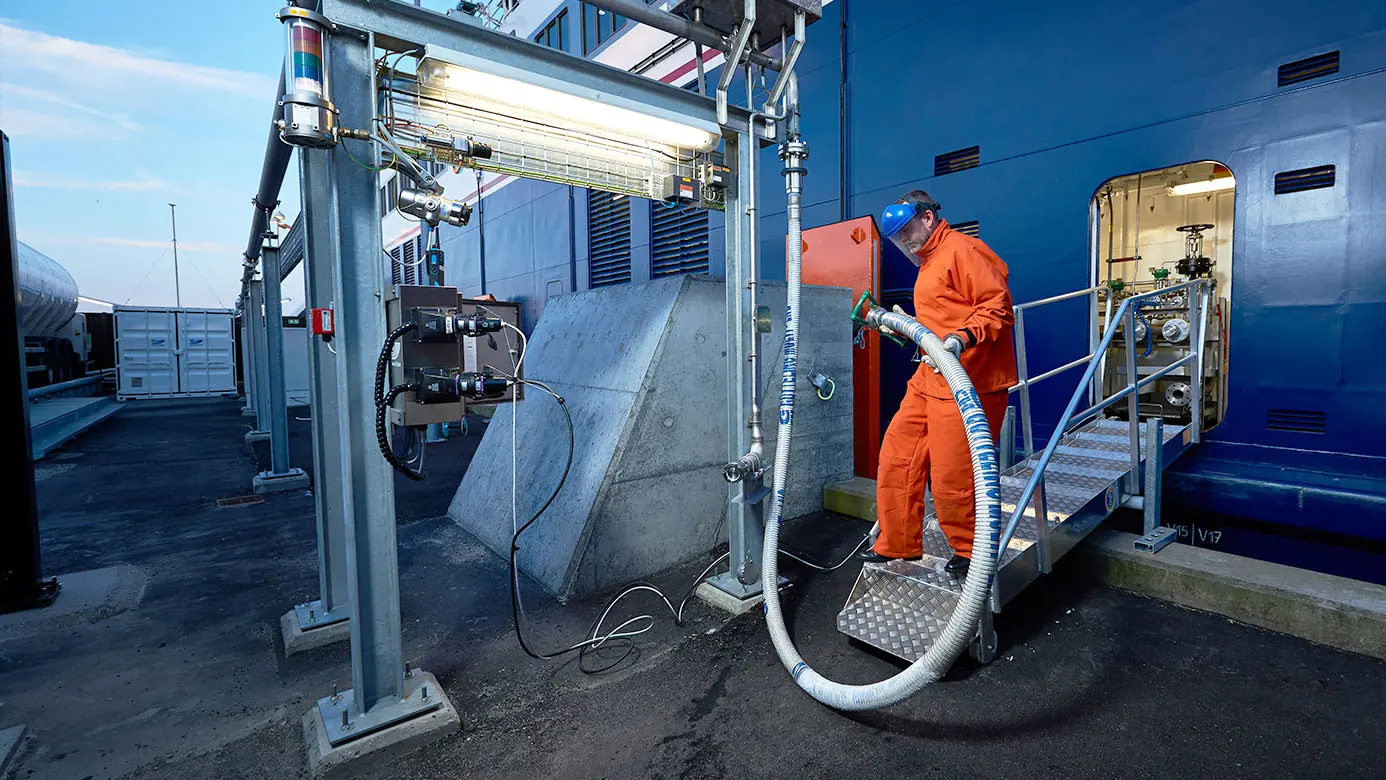Knowledge Centre

Lower-emission energy sources
Choosing LNG (Liquefied Natural Gas) or LBG (Liquefied Biogas) as your fuel source offers you a blend of efficient and reliable energy use. LNG produces fewer emissions and significantly lower air pollutants compared to traditional fossil fuels. Its high efficiency makes it a cost-effective choice for power generation and industrial applications. LNG’s ability to be transported and stored easily also ensures a stable energy supply, meeting the high demands of modern industries.
LBG, produced from organic waste, supports a circular economy by turning waste materials into valuable energy. LBG offers the same high efficiency and reliability as LNG, with the added benefit of being derived from waste resources.
Reduced emissions
The reduction of harmful pollutants such as CO2, nitrogen oxides (NOX), sulphur oxides (SOX) and particulate matter mean that switching to these gas solutions will have a positive impact on both human and planetary health. Unlike diesel and heavy fuel oil, LNG and LBG do not require extensive clean-up in the event of a spill. The natural gases simply evaporate and dissipate into the atmosphere, leaving no residue whatsoever in water or on soil to the benefit of surrounding ecosystems and water systems.
Easily available fuels
Since the volume of natural gas and biogas decreases significantly when undergoing the liquefaction process, the liquid gases take up 600 times less space than in their gaseous forms. Such compact energy sources are an advantage when it comes to both storage and transportation – very little space is required for a lot of energy. In that way, the fuels also become available to customers and vehicles, such as ships and trucks, that cannot be geographically tied to the gas grid.

Complying with international legislation limits
Aside from the benefits mentioned above, LNG and LBG also have a significant value in relation to legislation. With tightening international regulation of air emissions within the maritime industry for instance, many shipowners are forced to rethink their fuel solutions. Since traditional marine fuel does not meet the demanded requirements, new energy sources are needed. With their various benefits, LNG and LBG are both rational and responsible choices to keep the industry above water. Also, the trucking industry faces emission regulations when entering some of their hotspots. Many big cities, in Germany for example, have established low emission zones, and all vehicles that enter must meet certain low emission standards. A requirement that calls for alternative fuel solutions like LNG and LBG.
Cost-efficient solutions
The cost savings gained from switching from oil-based fuels to liquefied gas solutions depend on the constantly fluctuating prices of both commodities. Unlike oil, which is priced on a global scale, the prices of LNG and LBG vary across the globe depending on local supply and demand. Due to the higher calorific value of natural gas, gas-fired appliances typically offer higher efficiency than their oil-fired equivalents.
More knowledge sharing
Get in touch with MAKEEN Cryo
We have taken up the mission of developing innovative small-scale liquefied green gas solutions.


